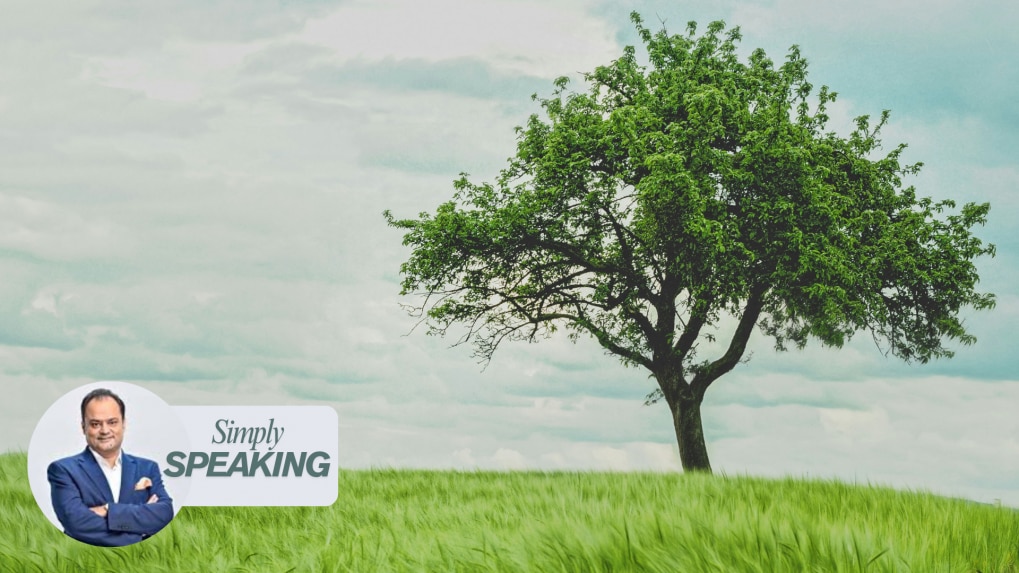Potted Plants and Forest Giants: Rethinking Brand Growth in an Age of Hype
A reflection on why lasting brands grow like deep-rooted trees rather than fast-blooming potted plants, sustained by trust, resilience, and purpose rather than hype.
ADVERTISEMENT
Some brands are like potted plants. Others, like trees in a forest.
In a world obsessed with rapid scale, instant virality, and quarterly performance, I find myself drawn to a quieter, older metaphor -
“Some brands are like potted plants. Others grow like trees in a forest.”
It’s a metaphor that’s been growing in my mind for some time especially in this age of overnight virality and engineered relevance. Not all growth is the same, and not all roots go deep.
In branding, the distinction between the “potted plant” and the “natural tree” often determines whether a brand merely survives a season or defines an era.
It may sound poetic, but this distinction reveals something fundamental about how brands are born, nurtured, and ultimately sustain or perish.
Potted Plant Brands - Fast-Growing, Fragile, and Dependent
Potted plant brands often appear beautiful at first glance. They’re carefully curated, grown in controlled environments, and thrive under constant care be it VC funding, influencer campaigns or algorithmically injected visibility. Their success is immediate and visually striking.
But their roots are shallow.
They bloom in ideal conditions, but even minor environmental shifts such as an economic downturn, a cultural backlash, or a platform algorithm update can trigger decline. Their growth depends not on resilience or reputation, but on maintenance.
Many direct-to-consumer (D2C) startups fit this pattern. Think of brands like Outdoor Voices or Glossier rising meteorically on the strength of aesthetics and community buzz. But once the hype cooled, so did their momentum. They weren’t embedded in customer lives in a way that would ensure longevity. They hadn’t become necessary.
Even legacy corporations sometimes fall into the potted plant trap. When companies launch trend chasing sub-brands - wellness today, climate tomorrow, tech the next - without substance or staying power, they risk creating plants that look good on the pitch deck but don’t survive beyond the funding cycle.
Tree Brands - Rooted, Resilient, and Regenerative
Tree brands are different.
They grow slowly. They often begin with modest visibility. But beneath the surface, they’re sending down deep roots into customer trust, cultural relevance, and institutional strength.
Over time, they become part of the ecosystem. Not just selling to consumers, but shaping expectations, behaviors, and values.
Consider Apple. It wasn’t always the juggernaut it is today. Through the 1990s, it was almost written off. But its philosophy of deep user empathy, elegant design, and a commitment to “thinking different”created roots that nourished decades of reinvention. Apple didn’t just bounce back; it became a gigantic banyan in the forest of global culture.
Closer to home, ICICI Bank stands out as a tree brand in the Indian context. It didn’t just enter the liberalized economy in the 1990s but helped shape it. By investing in infrastructure, technology, and a future-forward vision, ICICI built trust across generations. It adapted to every major wave from branch banking to mobile, from financial inclusion to fintech integration. Today, it is not only a financial services provider it is a pillar in the economic ecosystem. That it created generations of banking talent and leaders is one part of this phenomenal evolution.
Even Patagonia, a brand in a category often accused of disposability has grown into a tree brand. It rejects fast trends, champions environmental action, and holds firm to values. Its customer base is loyal not because of price or novelty, but because of purpose.
Why It Matters More Than Ever
In today’s marketplace, noise is easy. Authentic signal is rare. Anyone can launch a brand, buy impressions, generate buzz. But staying relevant through crises, evolving technology, and shifting consumer consciousness? That requires roots.
Tree brands don’t chase every trend. They build trust over time. They become resilient not by accident, but by consistent alignment between what they say and what they do. They don’t need to be constantly repotted. They belong in the soil.
The Leadership Litmus Test
So here’s a question for founders, marketers, and CMOs -
Is your brand a potted plant or a thriving natural tree?
Are you building something that needs constant tending and stimulation, or something that will one day provide shade, fruit, and longevity?
It’s not just a strategic choice but also a philosophical one. Because in the end, the brands that endure aren’t just grown. They’re planted well.
Read more: Simply Speaking: Pahlee Diwali? GST Bonanza Unlocking Demand, Fostering Inclusion
Read more: Simply Speaking: Swadeshi Social - India’s Strategic Imperative
Read more: Simply Speaking: When buybacks beat breakthroughs


